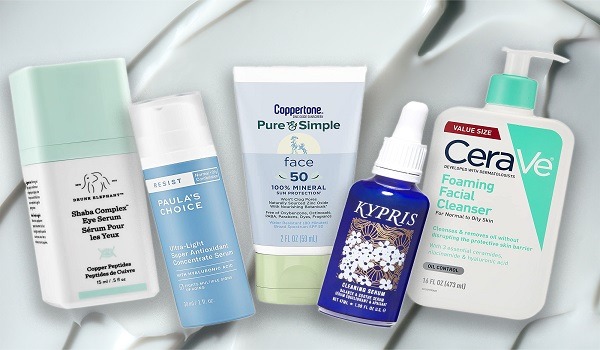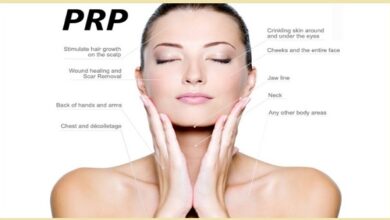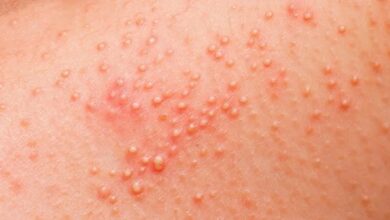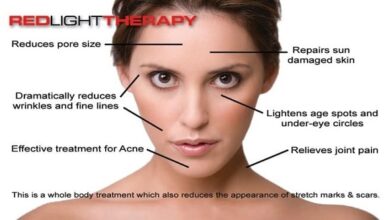
Acne is a common skin condition that affects people of all ages. While there are several treatments available to treat acne, finding the right product can be a daunting task. Here are some tips to help you find the right acne product:
- Determine your skin type: Knowing your skin type is crucial when selecting acne products. People with oily skin may benefit from products that contain salicylic acid, while those with dry skin may benefit from products that contain glycolic acid.
- Check the ingredients: Look for products that contain ingredients that are known to be effective in treating acne. Some of the most common ingredients include benzoyl peroxide, salicylic acid, and retinoids.
- Read reviews: Check out online reviews from other people who have used the product. This can give you a better idea of how effective the product is and whether it’s worth trying.
- Consult a dermatologist: If you’re unsure which product to use, consult a dermatologist. They can recommend a product based on your skin type and the severity of your acne.
How do I know which skincare products are right for my skin?
Knowing which skincare products are right for your skin can be a challenge, but there are a few things you can do to help you find the right products:
- Determine your skin type: Knowing your skin type is crucial when selecting skincare products. People with oily skin may benefit from products that are oil-free and lightweight, while those with dry skin may benefit from products that are rich and moisturizing.
- Look for products that address your skin concerns: If you have specific skin concerns, such as acne or hyperpigmentation, look for products that are designed to target those concerns.
- Read labels: Be sure to read labels and avoid products that contain ingredients that can irritate your skin.
- Do a patch test: Before using a new product, do a patch test to make sure you’re not allergic to any of the ingredients.
What should be the skincare routine for acne-prone skin?
The skincare routine for acne-prone skin should focus on keeping the skin clean and hydrated while also treating acne. Here’s a simple skincare routine for acne-prone skin:
- Cleanse: Use a gentle cleanser to wash your face twice a day, in the morning and at night.
- Tone: Use a toner to help remove any remaining dirt and oil from your skin.
- Treat: Apply a spot treatment or acne medication to any active acne.
- Moisturize: Use a lightweight, oil-free moisturizer to hydrate your skin without clogging pores.
- Sun protection: Apply a broad-spectrum sunscreen with an SPF of at least 30 before going outside.
What is the number 1 acne treatment?
There are several acne treatments available, but the number one acne treatment is considered to be benzoyl peroxide. Benzoyl peroxide works by reducing the amount of bacteria on the skin and helping to unclog pores. It is available in over-the-counter and prescription strength and can be found in cleansers, spot treatments, and acne creams. However, it’s important to note that everyone’s skin is different, and what works for one person may not work for another. It’s always best to consult a dermatologist if you’re unsure which treatment is right for you.
Can diet affect acne?
Yes, diet can affect acne. Studies have shown that high-glycemic foods, such as sugary drinks and processed foods, can increase the risk of developing acne. Foods that are high in dairy, such as milk and cheese, have also been linked to acne. It’s important to maintain a healthy and balanced diet to help prevent and manage acne.
What are some natural remedies for acne?
There are several natural remedies that can help treat and prevent acne:
- Tea tree oil: Tea tree oil has anti-inflammatory and antibacterial properties that can help reduce inflammation and kill bacteria on the skin.
- Aloe vera: Aloe vera has soothing properties that can help reduce redness and inflammation caused by acne.
- Honey: Honey has antibacterial properties that can help kill bacteria on the skin and reduce inflammation.
- Green tea: Green tea has antioxidants that can help reduce inflammation and fight bacteria on the skin.
- Witch hazel: Witch hazel has astringent properties that can help remove excess oil from the skin and reduce inflammation.
How can I prevent acne?
There are several things you can do to help prevent acne:
- Cleanse your skin twice a day using a gentle cleanser.
- Use non-comedogenic skincare and makeup products.
- Avoid touching your face, as this can transfer bacteria from your hands to your skin.
- Maintain a healthy and balanced diet.
- Avoid picking or squeezing pimples, as this can lead to scarring and further breakouts.
- Get enough sleep and manage stress levels, as stress can trigger acne.
What are the best ingredients to look for in skincare products for acne-prone skin?
There are several ingredients that are effective in treating and preventing acne-prone skin:
- Salicylic acid: Salicylic acid is a beta-hydroxy acid that helps to unclog pores and exfoliate the skin.
- Benzoyl peroxide: Benzoyl peroxide is an antimicrobial agent that helps to kill bacteria on the skin and reduce inflammation.
- Retinoids: Retinoids are vitamin A derivatives that help to exfoliate the skin and reduce the production of oil.
- Niacinamide: Niacinamide is a form of vitamin B3 that helps to reduce inflammation and improve the overall appearance of the skin.
- Tea tree oil: Tea tree oil has antimicrobial and anti-inflammatory properties that can help reduce inflammation and kill bacteria on the skin.



